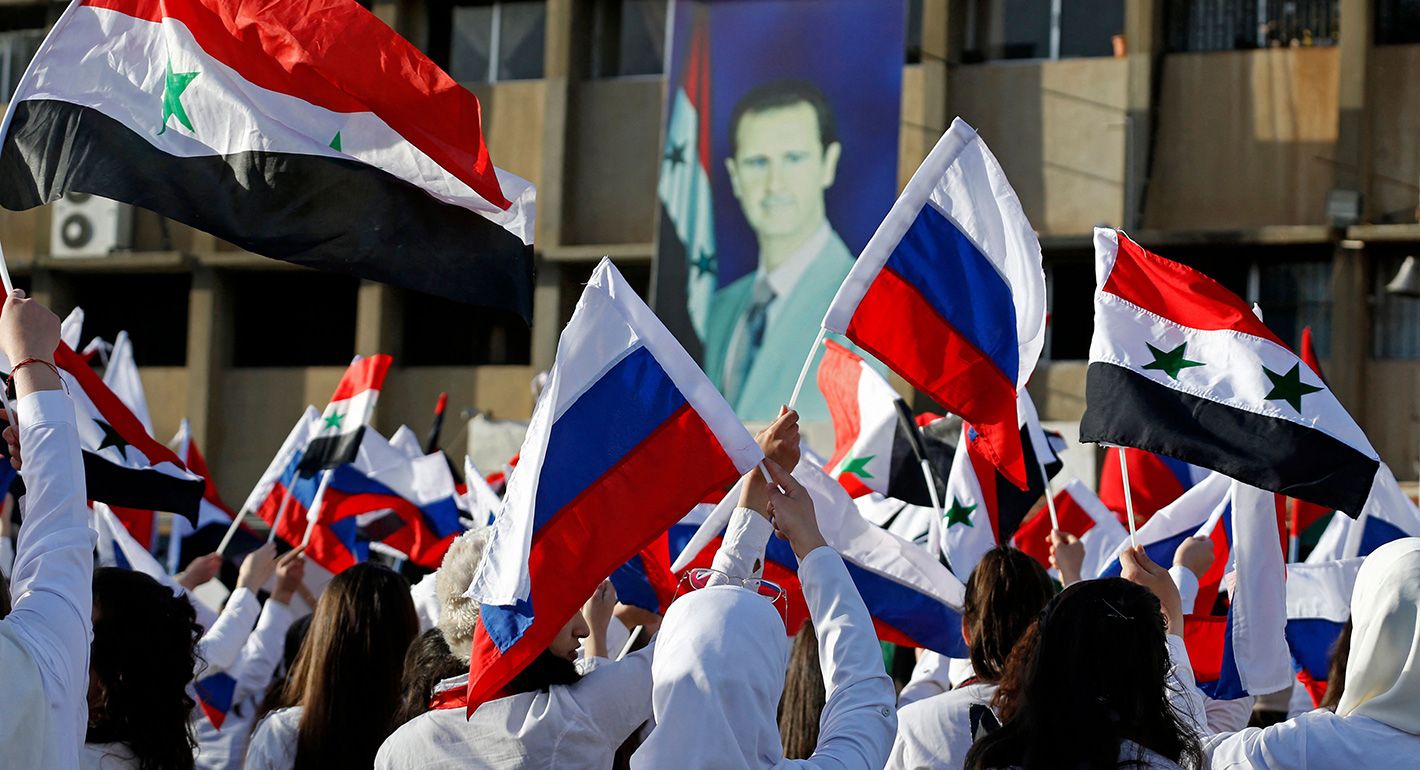
Assad and Russia are expanding their economic cooperation, focusing on agriculture as a key sector amid ongoing sanctions against the Assad regime. On Wednesday, Assad’s Agriculture Minister Muhammad Hassan Qatana met with Yevgeny Kozel, the Charge d’Affaires of the Russian Embassy in Damascus, to discuss enhancing bilateral ties in agricultural production and trade. The talks signal “a new phase in economic relations between the two countries,” which have grown increasingly interdependent since Russia’s 2015 military intervention in the Syrian revolution.
Qatana emphasized the urgency of finalizing an “economic and scientific cooperation agreement,” which would “increase trade exchanges and streamline joint projects.” “We are ready to enhance our agricultural cooperation with Russia and accelerate the signing of agreements that will benefit both countries,” Qatana told reporters, according to the regime’s Al-Watan newspaper.
The meeting addressed Assad’s critical need for fertilizer, seeds, and agricultural supplies. Qatana outlined the projected need for 100,000 tons of nitrogen fertilizers for the upcoming planting season, along with significant quantities of potato and vegetable seeds. He proposed exporting surplus olive oil to Russia, particularly in smaller packages to maintain product quality.
Kozel underscored Russia’s commitment to expanding agricultural ties, stating that regular meetings between the regime and Russian experts are essential to overcoming obstacles and boosting production. “We aim to enhance agricultural cooperation to increase output and facilitate the exchange of products between our countries,” Kozel said.
This collaboration builds on several agreements in recent years that have positioned Russia as Assad’s primary supplier of fertilizers, seeds, and pesticides, supporting the regime’s agricultural sector in the face of international sanctions.
Russia’s influence over Assad’s economy extends beyond agriculture. Earlier this month, Russia and companies with ties to the regime reached a major agreement to establish a direct shipping line between the two countries’ ports, bypassing Western sanctions. The deal, signed by the Al-Daj Group for Land Shipping and Russia’s Rosline, will launch two direct maritime routes between Latakia and Russian ports in October.
Mahmoud Al-Daj, chairman of the Al-Daj Group, hailed the agreement as a significant step in boosting exports for areas under regime control, particularly fresh fruits and vegetables. “This will cut the shipping period and costs by 50% compared to land shipping,” Al-Daj said, adding that the partnership will help sustain Assad’s agricultural export market despite economic isolation.
Al-Daj Group, which is central to Syria’s maritime shipping deal with Russia, was also included in the EU’s latest round of sanctions. The sanctions target entities that facilitate the regime’s economic activities, including airlines, travel agencies, and investment firms.
The burgeoning economic relationship between Damascus and Moscow reflects Russia’s continuing strategy to entrench its influence in Syria, particularly in strategic sectors like agriculture and maritime transport. Since intervening militarily in 2015, Russia has not only supported the Assad regime on the battlefield but also secured key economic agreements that bolster its long-term presence in the region.
These developments come as Russia consolidates control over several sectors in the region, including oil, gas, and construction. The growing economic integration serves both regimes’ interests. Assad is struggling under sanctions, and gains crucial support, while Putin secures valuable influence and access to markets and resources under Assad’s control.








